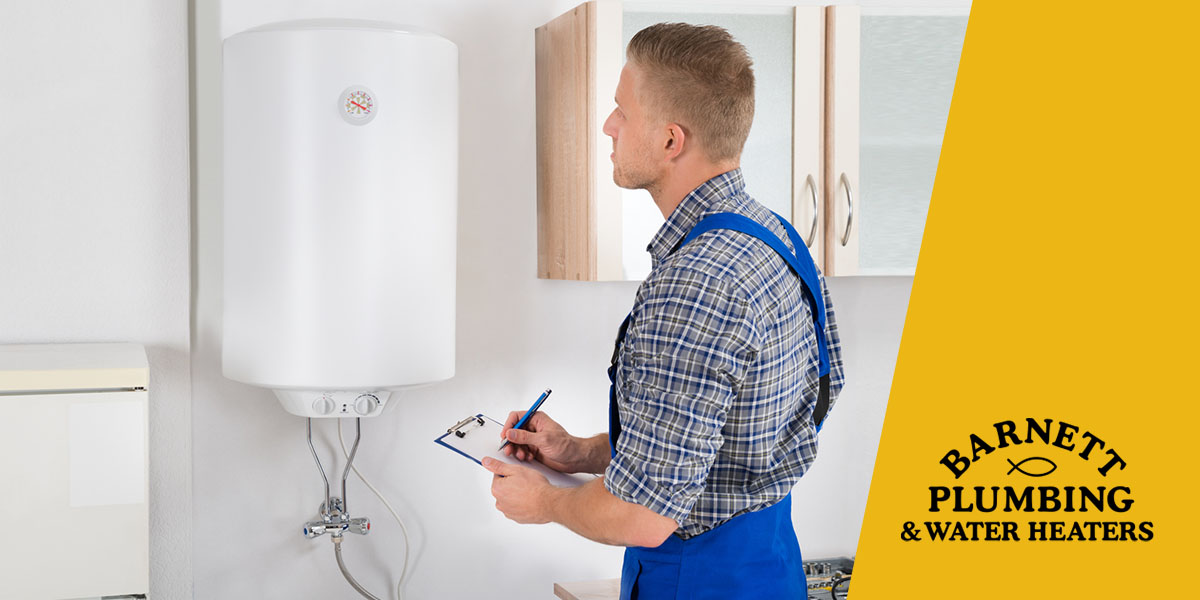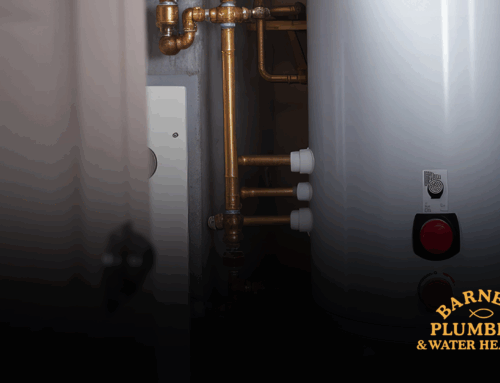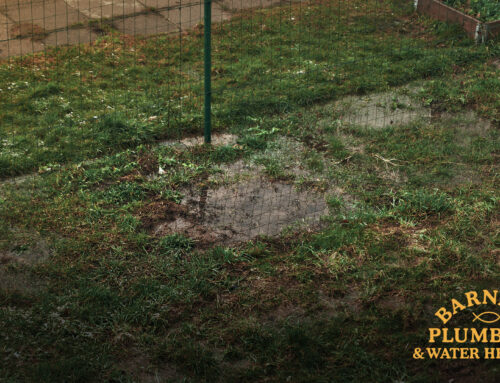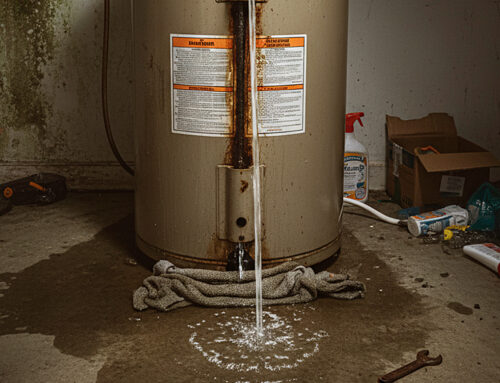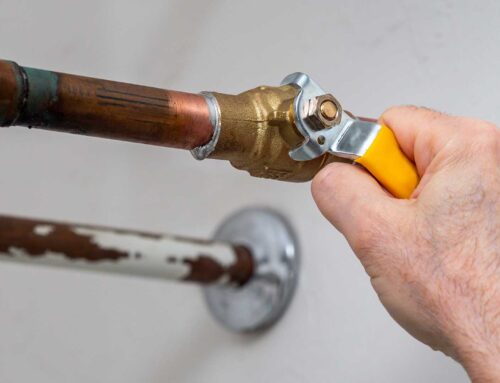You depend on your water heater daily, and minor issues can mean a major disruption. Being unable to shower or wash your dishes because of a lack of hot water can ruin your day. Whether you’re concerned about the noises your unit makes or the color of your water, many issues are relatively easy to resolve.
Learn about common water heater problems, how to troubleshoot your water heater and when to call in a professional.
1. Cold or Cool Water
If your water isn’t getting hot enough, first inspect the power or fuel. A power failure is one of the most common electric water heater issues. Examine the circuit breaker and any power switches, including the thermostat. For a gas water heater, make sure the pilot light is still lit, and the gas is turned on at the water heater and at the meter going into the house.
However, inadequate hot water could also be due to a failed heating element or gas control valve or the equipment being too small to meet your household’s demands. A professional water heater technician can help you decide whether to repair or replace a unit with a broken heating element.
If you aren’t ready to replace a small unit, try staggering hot water usage to give the tank time to reheat. For example, don’t shower while the dishwasher is running, or try washing your clothes on a cold cycle.
2. Strange Noises
Many unusual water heater noises are due to sediment buildup or loose parts. For example, sediment can cause the bottom of the tank to overheat and boil the water, leading to popping, whining, rumbling and knocking. Screeching or whistling is likely due to loose valves releasing steam like a kettle, and ticking or clicking can be caused by loose parts or sudden water pressure changes. If you have hard water, consider installing a water purification system to reduce sediment and mineral buildup.
Knocking can also be due to water hammering, which can be strong enough to burst pipes. This issue occurs when water floods backward through your pipes when the water is off. You can install a water hammer arrestor to reduce this phenomenon. If that doesn’t stop the problem, consult a professional.
Ensuring all connections are properly tightened and flushing sediment out of your tank can stop most of these noises. Use the following steps to drain and flush your water heater:
- Turn off the water and power.
- Close the cold water valve.
- Wait two hours for the tank to cool.
- Attach one end of a hose to your water heater and set the other end outside.
- Open a hot water faucet to clear the pressure from the water lines.
- Open the drain valve on your water heater to empty the tank.
- Once drained, open the cold water valve to flush the tank with fresh water until it runs clear from the hose.
- Close the cold water valve and the drain valve. Remove the hose.
- Open the cold water valve to fill the tank. Once the water runs smoothly from the open hot water tap, the tank is full, and you can turn off the tap.
- Turn on the water and power.
Hiring a water heater technician to inspect and flush your tank is much easier, saving you time, energy and headaches. Call Barnett Plumbing & Water Heaters at +1-925-294-0171 to schedule an appointment.
3. Water Heater Leaks
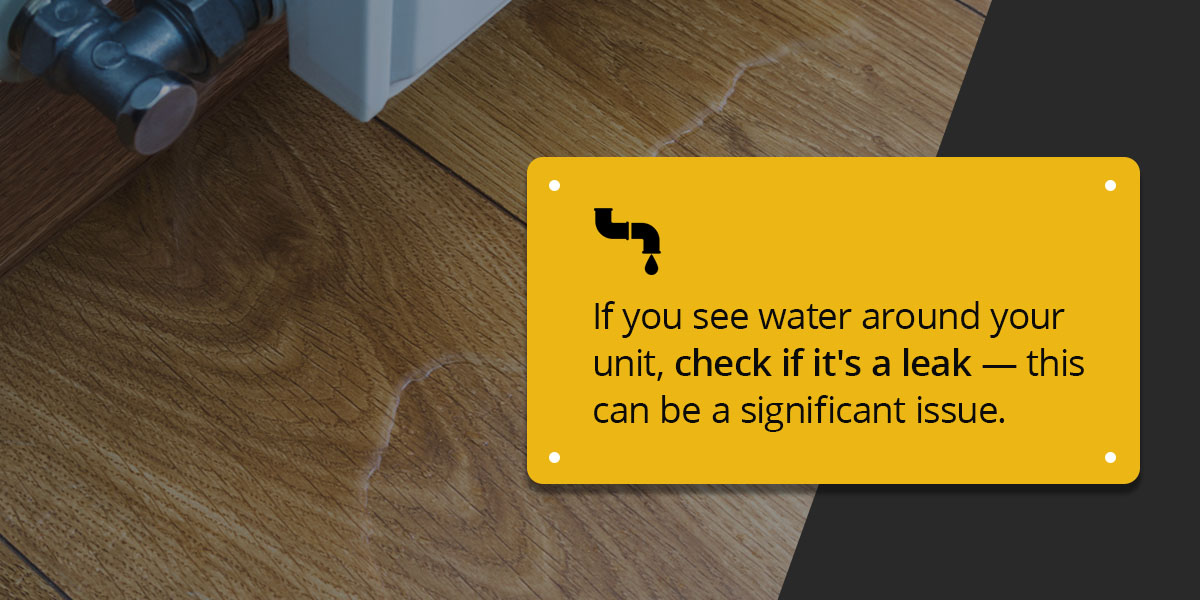
If you see water around your unit, check if it’s a leak — this can be a significant issue. Water under your equipment could be due to condensation, high humidity or water spilling from the pressure relief valve or overflow pipe.
Another common cause is a loose connection. Cold water on top of your tank often indicates a loose inlet connection that requires tightening. If the leaking water is warm, tighten the outlet.
If the pressure relief valve is leaking and not releasing pressure as it should, you must replace it. Turn off the power and water, drain your water heater tank and call a professional for assistance.
Water leaking from the side or bottom of the tank is the most concerning problem. This type of leak likely means your tank is corroded or otherwise damaged and must be replaced immediately. Turn off the water and power to the equipment, then drain the tank to prevent further damage. A water heater expert can help you choose new equipment for your home.
4. Discolored Water
Brown, red or rusty-colored water is likely due to corrosion. If the tank isn’t overly corroded, you may be able to stop further damage by bringing in a professional to change the anode rod. This sacrificial metal attracts corroding elements, which rust instead of the water heater tank.
However, you may need to replace your tank if it’s so corroded that replacing the anode rod isn’t likely to help or if you have leaks in addition to discolored water.
5. Pilot Light Issues
A properly working pilot light should not need to be relit. It is a steady blue flame that runs 24/7. If your pilot light is weak or you can’t keep it lit, you may have one or more of the following:
- Excessive condensation
- A dirty pilot tube
- Thermocouple issues
- Poor ventilation or drafts
- Gas line or supply problems
With the proper precautions, you can relight your pilot light yourself. If you still have issues after troubleshooting your water heater, bring in a professional to clean and service it.
Preventive Maintenance
Proper preventive maintenance can help you avoid many of these issues. Here’s how often you should undertake various maintenance tasks:
- Every three months: Inspect your water heater and call a technician if you notice anything unusual.
- Every year: Drain and flush the water tank.
- Every three to five years: Replace the anode rod, even if you don’t notice discolored water.
Insulating your pipes and keeping the temperature at 120 degrees Fahrenheit or lower can also keep your water heater running efficiently.
Contact the Experts at Barnett Plumbing & Water Heaters to Solve Your Water Heater Problems
If you’re still having hot water problems after troubleshooting them yourself, you can trust Barnett Plumbing & Water Heaters to handle the issue. We service water heaters in Alameda, Contra Costa, San Mateo and Santa Clara counties.
Since 2005, our experienced technicians have installed, diagnosed and repaired all types of water heaters in the Tri-Valley area. We are trained in repairing tankless and heat pump water heaters in addition to traditional units.
Contact us today for a free on-site inspection and estimate.

